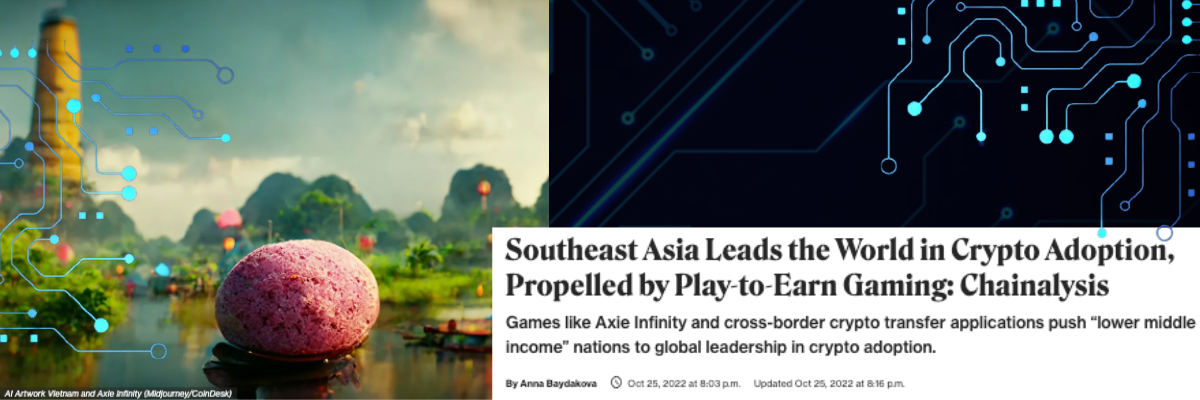Empowering Relationships: BVSM Marriage Services
Explore expert advice and support for successful marriages.
Leveling Up: How Cryptocurrency is Transforming the Gaming World
Discover how cryptocurrency is revolutionizing gaming! Unlock new opportunities, earn, and play to win in this exciting digital frontier.
The Intersection of Blockchain and Gaming: How Cryptocurrency is Shaping the Future
The integration of blockchain technology within the gaming industry represents a revolutionary shift that is reshaping how players interact with their favorite titles. By leveraging cryptocurrency, developers can offer players true ownership of in-game assets, enabling them to buy, sell, or trade items on decentralized marketplaces. This not only enhances player engagement but also introduces new revenue streams for game developers. As we move forward, the demand for transparency and fairness in gaming will likely accelerate the adoption of blockchain, providing a level of trust that traditional gaming models struggle to achieve.
Furthermore, the emergence of play-to-earn models is a tangible consequence of this intersection between blockchain and gaming. Players can now earn real-world income through their gaming activities, fostering a new economy where time spent in virtual worlds translates to tangible benefits. This evolution has attracted millions of players, especially in regions where traditional job opportunities are scarce. As cryptocurrency continues to gain traction, we can expect a more immersive and rewarding gaming experience, ultimately leading to a future where gaming and financial opportunities are intricately intertwined.

Counter-Strike is a popular first-person shooter game that has captivated millions of players around the world. The game focuses on teamwork and strategy, making each match a thrilling experience. Players often look for ways to enhance their gaming experience, such as using a duelbits promo code to gain advantages or rewards.
Unlocking In-Game Economies: The Role of Cryptocurrency in Game Development
In recent years, cryptocurrency has emerged as a transformative force in the gaming industry, particularly in the realm of in-game economies. By integrating cryptocurrencies, game developers can create unique economic models that transcend traditional monetary systems. Players can earn, trade, and utilize digital currencies, enhancing their overall gaming experience. Moreover, this integration fosters a sense of ownership and investment among players, as they can directly profit from their in-game activities. The rise of decentralized finance (DeFi) protocols further supports this concept, allowing for innovative features such as yield farming and liquidity mining within gaming environments.
Additionally, the implementation of blockchain technology alongside cryptocurrency ensures transparency and security in transactions, which is crucial for maintaining trust in any in-game economy. Players can track the provenance of in-game assets, guaranteeing their authenticity and value. This shift not only encourages more robust player engagement but also opens new avenues for monetization for developers. As the gaming sector continues to evolve, embracing cryptocurrency could redefine player interactions and economic systems, making it a vital element in the future of game development.
Is Play-to-Earn the Future of Gaming? Exploring the Rise of Crypto in the Gaming Industry
The emergence of Play-to-Earn models in the gaming industry has sparked significant debate about their potential to shape the future of gaming. These models allow players not only to enjoy interactive experiences but also to earn real-world value through cryptocurrency and non-fungible tokens (NFTs). As the gaming landscape evolves, we see a burgeoning ecosystem where players can monetize their skills and time. This shift towards decentralization and player empowerment could redefine traditional gaming paradigms, making it more inclusive and rewarding.
As we explore the rise of crypto within the gaming sector, it is essential to consider the various implications of these emerging technologies. Players are increasingly drawn to games that offer Play-to-Earn mechanics, which could potentially create an entirely new economy within the gaming world. Moreover, this trend aligns with the broader acceptance of digital currencies in everyday transactions, facilitating a seamless integration of blockchain technology. However, challenges such as market volatility and regulatory scrutiny remain, keeping the conversation around crypto in gaming both relevant and dynamic.